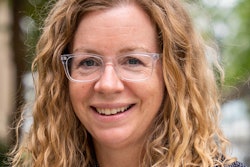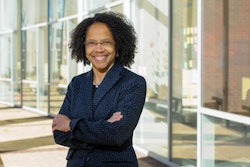David A. Singleton believes that taking the long view in advocating for progressive change in the criminal justice system starts with the basics: legal education.
Singleton, the executive director of the Ohio Justice & Policy Center in Cincinnati, found that the conservatism of local law firms prevented their attorneys from partnering with the center on prisoner and former offender civil rights cases. He turned to area law schools for help.
“In Cincinnati, we could not get the big law firms to touch any of the work that we did,” he recalls.
Under Singleton, a Harvard Law-trained former public defender, the OJPC has represented prisoners alleging physical abuse by guards and other prisoners, restriction of their rights to observe certain religious practices, inadequate health care and other forms of mistreatment while being imprisoned. On behalf of the formerly incarcerated, the center routinely represents clients who are facing discriminatory treatment while seeking housing and jobs and dealing with legal matters that often threaten to send individuals back to jail, such as resolving child support disputes.
“There was a huge challenge to make ourselves relevant in a city that is very conservative politically. And most people consider themselves to be law-and-order types and tough on crime. That’s what I was walking into, and my question was ‘How do we grow the organization?’” says Singleton.
Officials at the Northern Kentucky University Salmon P. Chase law school took up the OJPC’s invitation for a collaboration. In 2006, the OJPC and the law school established the Constitutional Litigation Clinic to provide up to eight Chase students during their third year of law school hands-on experience litigating civil rights cases on behalf of prisoners and former offenders in Ohio state and federal courts.
The idea was to launch a clinic “that will help us over time change the conversation in the legal community about the importance of the work that we do,” so that an emerging cohort of attorneys in Ohio and northern Kentucky will be better trained to represent and advocate for prisoners and the formerly incarcerated, according to Singleton, who is a visiting professor at the Chase law school.
“Our long-term approach is that these students will be in a much better position to change the legal culture because that’s what we’re trying to do,” he says.
“The work that the OJPC does has really brought to our law school a number of tremendous benefits,” says Dennis Honabach, dean of the Chase law school. “Students who participate have a first-rate learning experience that not only teaches them how to be a lawyer but also helps them to begin to develop an empathy toward the clients and an understanding of law as a tool for protecting the rights of individuals.”
In addition to the Constitutional Litigation Clinic, the law school and OJPC have established the Indigent Defense Clinic for students interested in public defender experience.
Since 2002 when Singleton was named the executive director of the OJPC, the organization has grown from two staff members to 14, and its annual budget has increased from $200,000 to roughly $1 million. Singleton says that, even as national foundations, such as the Open Society Institute and the Ford Foundation, have become OJPC supporters, he is proudest of how the local Cincinnati and Ohio organizations have increased their support of the OJPC.
Singleton believes the OJPC is well positioned to advocate for criminal justice reform on a national level. OJPC staff and supporters should be part of the movement to steer policy discussions “around criminal justice issues away from this tough-on-crime rhetoric that elected officials spout to get votes to a smarter approach that is fair and just and also more cost-effective because we’re just locking away too many people in Ohio and across the nation,” he says.





















